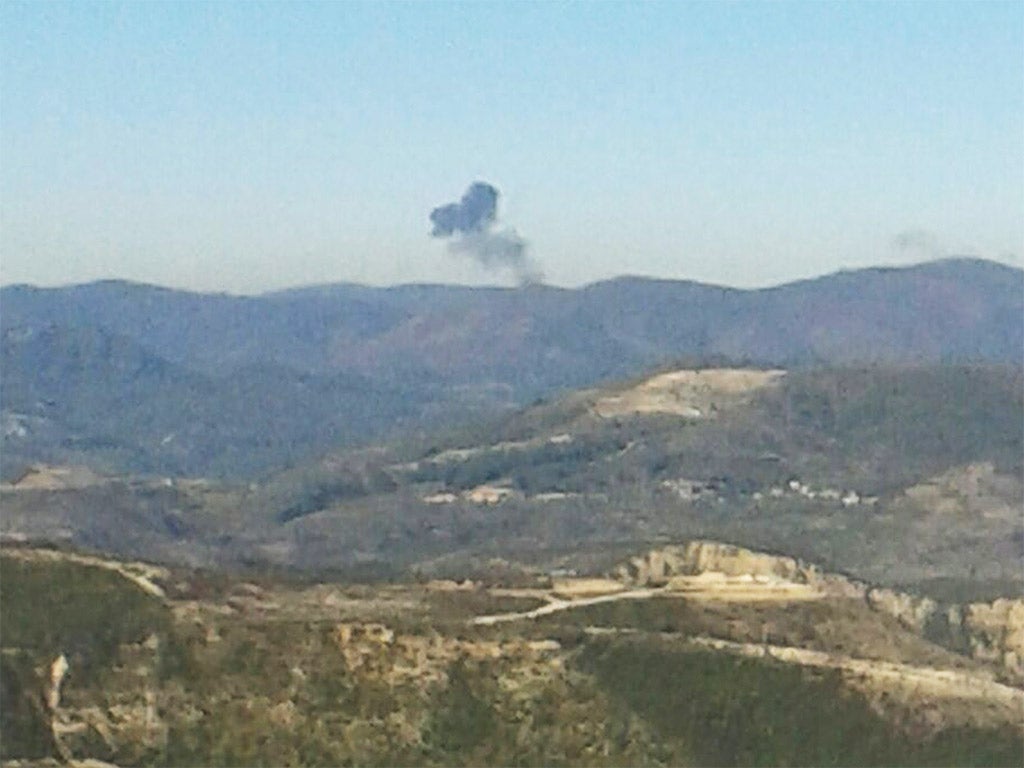Turkey shoots down Russian plane: Nato will be worried by strike on Russia
It is damaging for Turkey to have bad relations with Russia and Iran, two powerful neighbours close to its borders


Your support helps us to tell the story
From reproductive rights to climate change to Big Tech, The Independent is on the ground when the story is developing. Whether it's investigating the financials of Elon Musk's pro-Trump PAC or producing our latest documentary, 'The A Word', which shines a light on the American women fighting for reproductive rights, we know how important it is to parse out the facts from the messaging.
At such a critical moment in US history, we need reporters on the ground. Your donation allows us to keep sending journalists to speak to both sides of the story.
The Independent is trusted by Americans across the entire political spectrum. And unlike many other quality news outlets, we choose not to lock Americans out of our reporting and analysis with paywalls. We believe quality journalism should be available to everyone, paid for by those who can afford it.
Your support makes all the difference.Turkey must have been eager to shoot down a Russian aircraft. Even going by the Turkish account of what happened, as illustrated by a Turkish map of the route of the Russian plane, it would only briefly have been in Turkish airspace as it crossed a piece of Turkish territory that projects into Syria.
Why would Turkey do this? Probably because Ankara has become increasingly furious, since Russian air strikes started in Syria on 30 September, that Russian jets were routinely invading its airspace. The Turkish government also knows that its policy since 2011 of getting rid of President Bashar al-Assad has failed and that it has a diminishing influence in events in Syria as Russia, the US, France and possibly, in the near future, Britain increase their military involvement in Syria.
Specific events on the 550 mile-long Syrian-Kurdish role may also have played a role. This year Turkey has seen the Syrian Kurds, whom it denounces as terrorists as bad as Isis, take control of half of the frontier and threaten to move west of the Euphrates. More recently, Syrian army units backed by Russian air strikes have been attacking towards the other end of the border near where the Russian plane came down and the pilots were killed.
Nato countries will give some rhetorical support to Turkey as a Nato member, but many will not be dismissive in private of President Vladimir Putin’s angry accusation that Turkey is the accomplice of terrorists. Turkey’s support for the Syrian armed opposition, including extreme groups like Jabhat al-Nusra and Ahrar al-Sham, has been notorious over the last three years. Its relations with Isis are murky, but it has been credibly accused of allowing the self-declared Islamic State to sell oil through Turkey.
Turkish President Recep Tayyip Erdogan is in a strong domestic position because of his sweeping parliamentary election victory on 1 November. But he has seen what appeared to be a strong Turkish position in the Middle East in 2011 deteriorate year by year as leaders and movements he supported, such as President Morsi in Egypt and the opposition in Syria, suffer defeats.
At the same time, it is damaging for Turkey to have bad relations with Russia and Iran, two powerful neighbours close to its borders. Leaders of Nato countries will want to prevent further Russian-Turkish hostilities, so they can look for Russian cooperation in attacking Isis and ending the Syrian conflict.
Join our commenting forum
Join thought-provoking conversations, follow other Independent readers and see their replies
Comments